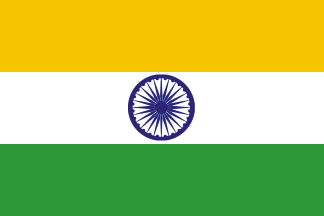 État de l'Uttarakhand |
Uttarakhand Loi sur la Commission des minorités 2002 |
Loi sur le changement de nom de l'Uttaranchal, 2006).La Loi sur la Commission des minorités a été adoptée en 2002, donc avant le changement de nom de Uttaranchal en Uttarakhand (
|
Uttaranchal Commission for Minorities Act, 2002 Act 9 of 2002 An Act to constitute a Commission for minorities in Uttaranchal and to provide for matters connected therewith or incidental therein It is hereby enacted in the Fifty-Third Year of the Republic of India as follows : Section 1 Short title, extent and commencement 1) This Act may be called the Uttranchal Commission for Minorities Act 2002. 2) It shall extend to the whole of Uttaranchal. 3) It shall corne into force on such date as the Government may, by notification publish in this behalf. Section 2 Definitions In this Act unless a contrary intention appears from the context:
Section 3 Constitution of the Uttaranchal Commission for Minorities 1) The Government shall constitute a body to he known as the Uttaranchal Commission for minorities to exercise the powers conferred on, and to perform the functions assigned to it under this Act; 2) The Commission shall
consist of a Chairman and two Members to be nominated by the
Government from amongst persons of eminence, ability and
integrity Chairman shall be front amongst the minority Communities. Section 9 Functions of the Commission 1) The Commission shall perform all or any of the following functions namely:
2) The Government shall cause the recommendations referred to in clause (c) of sub-section (1) to be laid before the State Legislature along with a memorandum explaining the action taken or proposed to be taken on the recommendations and the reason for the non-acceptance if any of such recommendations. 3) The Commission shall, while performing any of the functions mentioned in clauses (a), (b) and (d) of sub-section (1) have all the powers of a civil court trying suit and in particular, in respect of the following matters, namely:
|
Loi sur la Commission pour les minorités de l'Uttaranchal de 2002, Loi n° 9 2002 Loi instituant une Commission pour les minorités dans l'Uttaranchal et prévoyant des questions connexes ou accessoires qui y attachées Il est présentement promulgué dans la cinquante-troisième année de la république de l'Inde ce qui suit: Article 1er Titre abrégé, application et début 1) La présente loi peut être appelée Loi sur la Commission pour les minorités de l'Uttaranchal de 2002. 2) Elle doit s'appliquer à l'ensemble de l'Uttaranchal. 3) Elle entre en vigueur à une date que le gouvernement peut publier au moyen d'un avis à cet effet. Article 2 Définitions Dans la présente loi, sauf indication contraire du contexte:
Article 3 Constitution de la Commission pour les minorités de l'Uttaranchal 1) Le gouvernement doit un organisme qu'il appelle la Commission pour les minorités de l'Uttaranchal afin d'exercer les pouvoirs qui lui sont conférés et pour remplir les fonctions qui lui sont assignées en vertu de la présente loi;
2) La Commission est composée d'un président et de deux membres qui
sont désignés par
le gouvernement parmi des personnalités éminentes, leur capacité
et leur intégrité, Le président doit figurer parmi les communautés minoritaires. Article 9 Fonctions de la Commission 1) La Commission exerce en totalité ou en partie des fonctions suivantes, c'est-à-dire:
2) Le gouvernement doit veiller à ce que les recommandations visées à l'alinéa c) du paragraphe 1) soient déposées devant la Législature de l'État ainsi qu'une note de service expliquant les mesures prises ou proposées concernant ces recommandations et le motif de leur refus de l'une de celles-ci. 3) La Commission doit, tout en exerçant l'une des fonctions mentionnées aux alinéas a), b) et d) du paragraphe 1, possède tous les pouvoirs d'un tribunal civil et en particulier en ce qui concerne les questions suivantes, c'est-à-dire:
|
![]()
Inde -
Uttarakhand![]()